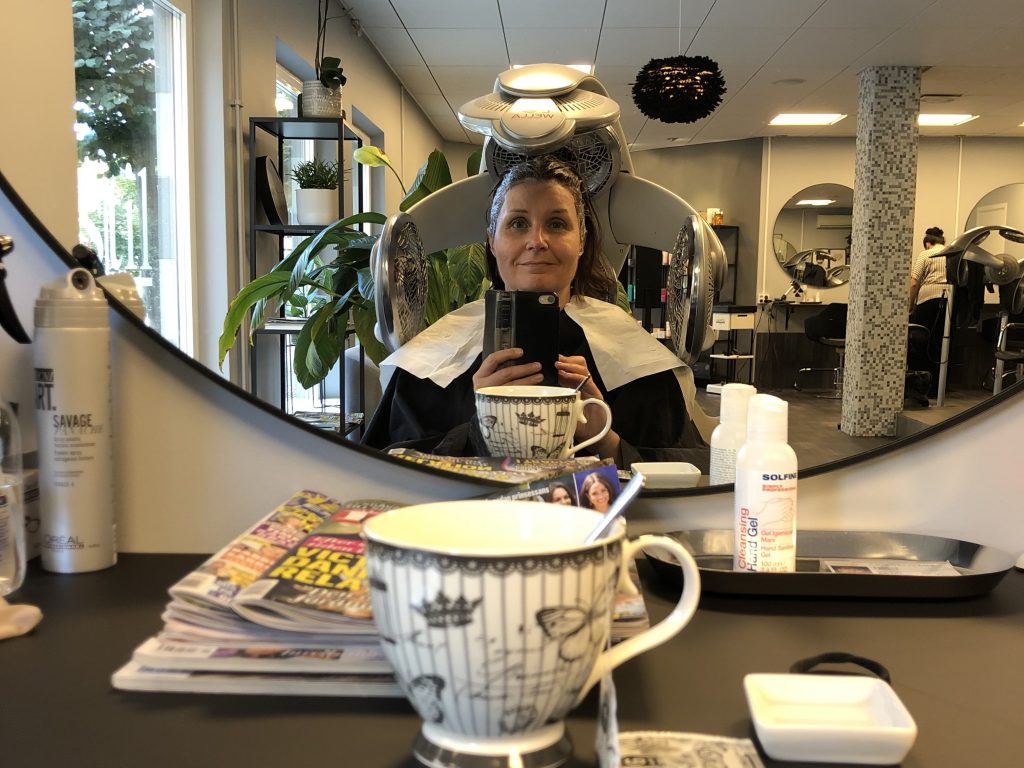
Scicomm saloon
Do you want to know a secret? Science communication does not have to be that hard. Just sit down, relax and get a haircut.
Apparently I have been in science communication long enough to be invited to give a keynote at the annual retreat of the future faculty at Lund University. I am thrilled to do so and am at the moment preparing my lecture with the title ”Pride and Prejudice in Science Communication”. While I don’t want to give away too much of the content, I want to share one little secret already now.
“Science communication does not have to be that hard.“
Some common thoughts are that science communication
- takes a lot of time and effort
- people might not be all that interested anyway
- science is hard to understand
The above might very well be true in some cases, after all organizing events like a science festival is quite time consuming. Some people might not be that interested in every nitty gritty detail of your work and yes, there is always that subject and project that is hard to understand. But I think it does not always have to be that difficult.
Let me give you a little example.
The retreat with the Future Faculty will be an in-person event (following restrictions, of course) so part of my preparation so far has been to go to the hairdresser. What does that have to do with science communication, you may ask.

I have known my hairdresser for a long time and after some chitchat about vacations we start to talk about the pandemic in general and vaccinations in particular. Via side effects and long covid we get into the immune system and how complex it is. While we talk about antibodies and T-cells a thought strikes me – this is not the first time we have this type of conversation. In the beginning of this year I told her how the vaccine could be developed so quickly and previously we have talked about cancer and immunotherapy. Sometimes I tell her about a recent interview with some hot shot scientist or about some research that I am just discovering myself for an article or podcast. She asks questions, I answer and tell her what I know and where she can find more information if she needs or wants it. I am not an expert on all subjects of course, but might know where to look and what sources are reliable.
I don’t know if it is a symptom of living in a university town that it is possible to have this kind of conversation with a hairdresser with no background in science. I would like to believe that it is more a sign of that it is perfectly possible to talk about science with anybody who is interested, and that listening to questions and trying to find an answer can be enough to get a good conversation about science going. And I truly enjoy these spontaneous and relaxed chitchats.
So all of this
- did not take a lot of time of effort (I was going to sit in the chair anyway)
- the interest was there all along
- by having a normal conversation and listening even complex things can be made understandable
I would like to throw in a bonus here: don’t underestimate people. Just because somebody does not have a background in science does not mean they won’t understand or are not interested. Genuine interest, asking questions and having a decent conversation can be enough. In fact this is my winning recipe as a science communicator when I do interviews in areas that I don’t know too much about myself.
So give it a try at some point! I would love to hear your thoughts about this.
Natalie von der Lehr is a science writer and podcaster and coach of the blog team
Cover Image from EPFL page.

0 comments